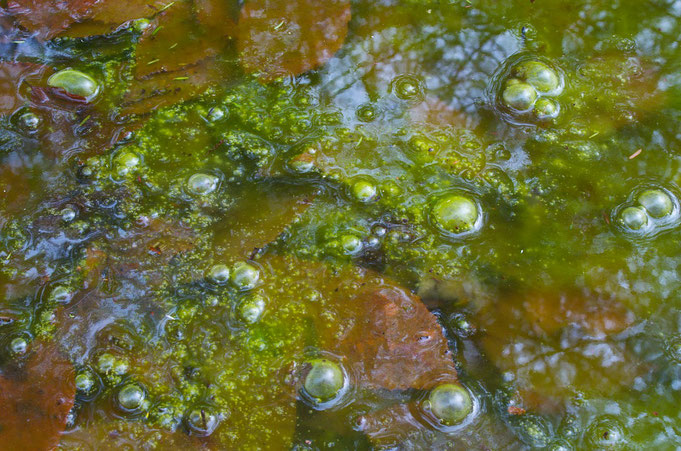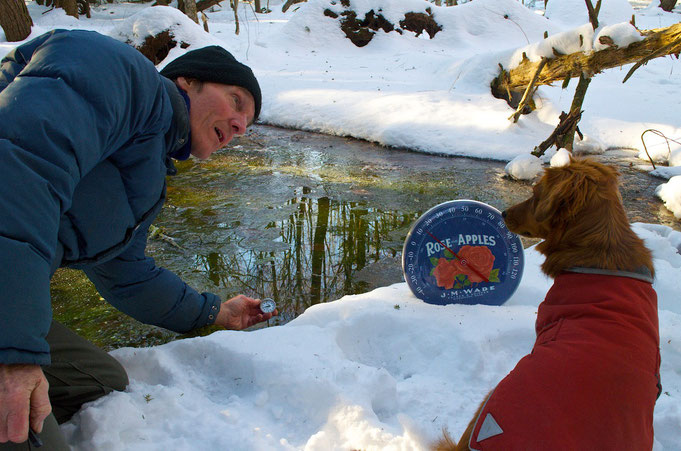
Are the wetlands at Distant Hill emitting Methane Gas and contributing to climate change? The answer to that question might be ... maybe!
According to Wikipedia, one of the most significant natural sources of atmospheric methane are wetlands, and they remain a major area of concern with respect to climate change. The methane is released as organic material in the wetland slowly decompose and ferment in the oxygen poor environment found there.
But I'm guessing that the bubbles might be oxygen, carbon dioxide, or some mixture of the two. Cyanobacteria, aka “blue-green algae", often dominate waters that are over-enriched with nutrients. They evolved the kind of photosynthesis that releases oxygen. The cyanobacterial cells capture sunlight as a source of energy, and split carbon dioxide (CO2) into carbon and O2. The carbon is used to build organic compounds, leaving the O2 free to join the atmosphere as free oxygen.

But if this is in fact methane being released, I'm sure that the small amount of being produced isn't adding much to total global gas emissions. But it certainly isn't helping.
The test to see if it is methane is to attempt to light it on fire. If it Burns it is methane. I definitely have to give that a try!
A Perfect Example of a ‘Catch 22’
According to Katey Walter Anthony in her Scientific American article 'Arctic Climate Threat -- Methane from Thawing Permafrost'
"Arctic permafrost is already thawing, creating lakes that emit methane. The heat-trapping gas could dramatically accelerate global warming. Methane is a potent greenhouse gas, packing 25 times more heating power, molecule for molecule, than carbon dioxide. If the permafrost thaws rapidly because of global warming worldwide, the planet could get hotter more quickly than most models now predict."
As more melting taking place, more methane is released, which causes more melting! A perfect example of a 'Catch 22'!

